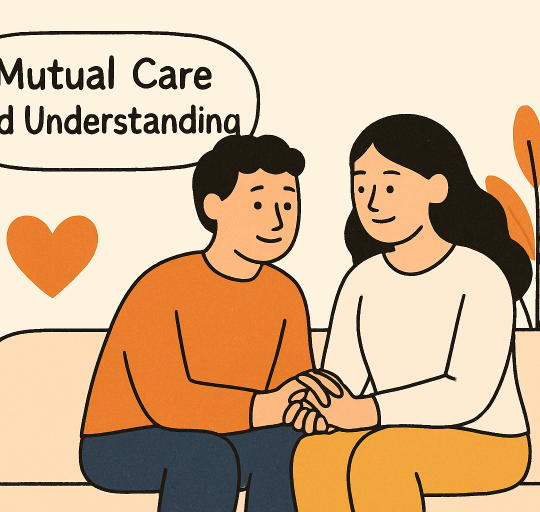 Being a healthcare worker, especially during a pandemic, is stressful. Ok, maybe that’s the understatement of the decade; being a healthcare worker during a pandemic is unimaginably taxing on the mind and body. Long shifts, the constant threat of disease looming over your head all day, and the rigors of the job tend to take their toll. But even before the pandemic took hold, healthcare workers were subjected to intense working conditions.
Being a healthcare worker, especially during a pandemic, is stressful. Ok, maybe that’s the understatement of the decade; being a healthcare worker during a pandemic is unimaginably taxing on the mind and body. Long shifts, the constant threat of disease looming over your head all day, and the rigors of the job tend to take their toll. But even before the pandemic took hold, healthcare workers were subjected to intense working conditions.
Healthcare workers are some of our most important societal contributors. Without a team of passionate and dedicated people, we wouldn’t have some of the best hospitals in the world. Sure, our insurance system is a bit messed up (ok, it’s a disaster), but we make it work.
If you want to become a healthcare worker, there are some traits you’ll need to have in order to excel in the job. You can attend a medical coding academy and find a desk job, or go to medical school and get your hands dirty as a surgeon or an ER doctor. Whatever path you choose, here are seven traits you need as a healthcare worker.
Table of Contents
1. Compassion
Compassion is probably the most important trait of healthcare workers. Compassion helps you feel the need to help others; to sacrifice your time, your energy, and potentially jeopardize your personal health in order to do something bigger than yourself. This important trait is shared by pretty much all of our healthcare workers, and it’s what keeps them coming back to work every day.
The world could certainly use more compassion. It seems like the more “connected” we become via the internet, the less we truly understand one another. Compassion can help build permanent connections and drive change in the name of the greater good. Or, it can simply save a life.
2. Empathy
Empathy is often mistaken for its cousin, sympathy, but the two are entirely different. On the one hand, empathy helps you put yourself inside someone else’s shoes. You learn to see things from their perspective, which lends itself to a higher understanding of their struggles or pain. Sympathy is more of the “feeling bad” emotion when someone else is suffering. You don’t necessarily understand their pain, but you’re sad to see them upset.
This emotion is important because we can’t possibly understand how some people feel with chronic illness, traumatic injuries, or crippling diseases. Trying the best we can to empathize with those people will bring us closer to the patients and provide a more heartfelt care experience.
3. The Ability To Listen
So many of us are terrible listeners without even realizing it. When you talk to someone, do you truly listen to what they’re saying, or are you already loading up your next statement before they’re done talking? Good listening is a skill that everyone can benefit from, but those in healthcare need it more than most. Why? Because sometimes, only the patient can tell you what’s wrong.
We tend to think we know better than most people in our profession, and in some ways, that’s certainly true. But sometimes, we miss a detail, ignore a fact, or simply make a mistake. The only way to make things right is to listen and truly hear what your patients are saying. There’s probably a reason they’re complaining of chest pain!
These listening skills are especially critical for home health aides, who often spend more one-on-one time with patients than any other healthcare professional. When patients are in their own homes rather than clinical settings, they tend to be more candid about their symptoms, concerns, and daily challenges. This makes active listening an essential qualification for those pursuing hha jobs hiring in Philadelphia and other major metropolitan areas, where home healthcare demands continue to grow. HHAs who master the art of listening don’t just hear words – they pick up on subtle changes in tone, notice when something feels “off,” and can relay crucial observations back to nurses and physicians who depend on their frontline insights.
4. Passion
Being passionate about your job can not only help you get up on those sleepy mornings, but also keeps you going when things get tough and improves your overall quality of work. Workers who actually enjoy and are passionate about what they do will almost always outperform someone who doesn’t want to be there. Your patients will notice that passion as well, and recognize it in the care you give to them.
5. Communication
Good communication is key to any relationship, and it doesn’t just mean being a good listener. Being a good listener, while part of communication, is a skill of its own. Being a good communicator means listening and truly hearing, conveying your own thoughts in a meaningful and digestible way, and watching for body language and other cues. It also means being honest and giving out the correct information.
6. Honesty
Speaking of being honest, let’s talk about honesty and integrity for a moment. As a healthcare worker, you’ll have to adhere to an ethics code, and this is where honesty and integrity come in. Honesty is telling the truth and being genuine in your behavior in the presence of others, whereas integrity is what you do when no one’s around.
The healthcare code of ethics demands honesty and integrity from every healthcare worker, and, let’s be honest here—we could all use a little more truth in our lives.
7. Problem-Solving Skills
You’re going to run into challenges during your healthcare career, make no mistake. These challenges may have a quick resolution, or require months of dedicated work to solve. Either way, you need to have problem-solving skills to succeed.
Problem-solving means looking at those challenges with a sharp eye and identifying potential solutions. You then implement those solutions, and choose the one that works best for that problem.
Final Thoughts
Healthcare workers are an essential part of our society, and these seven traits are crucial to the perfect healthcare professional. If you want to improve your professional image and respect within the industry, these are seven traits you simply must have.







